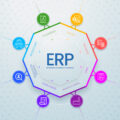Open source project management tools are abundant. However, identifying the right one can be challenging. Still, they are very important for companies that have adopted Agile to provide open source development services. Today, a great majority of organizations use Agile methodologies resulting in more successful projects compared to those that still go with traditional methodologies.
That said, this blog lists (in no particular order) 4 great open source project management tools that will prove beneficial to organizations that have adopted or are planning to adopt Agile this year. These tools are designed to support Agile-related methodology and practices including Scrum, Kanban etc.
OpenProject
A powerful open source project management tool popular for its ease of use, OpenProject is particularly useful in Agile software development environments. It facilitates effective team collaboration and makes project management much easier with modules that support project planning, scheduling, release planning, time tracking, bug tracking, budgeting, and Scrum as well. Its main features like prioritizing and tracking tasks are integrated with its other modules.
OpenProject is licensed under GPLv3.
Taiga
Taiga is an efficient management tool for Scrum projects and features a Kanban board, tasks, sprints, issues, a backlog, ticket management, wiki-pages, third-party integration support etc. Another awesome fact about Taiga is that it offers a free mobile app for iOS, Android, and Windows platforms. It’s also possible to migrate from other popular project management applications.
Taiga is also available for free to use for public projects. There is no catch. The number of public projects or the number of users do not have any restrictions. However, for private projects, Taiga can be really useful only if its paid plans are availed. These ‘paid plans’ are available under a ‘freemium’ model and have reasonable price tags for all kinds of organizations. What’s notable is the fact that the features of the application remains the same for both free and paid use.
Taiga is licensed under GNU Affero GPLv3. It requires a stack comprised of Nginx, Python, and PostgreSQL.
MyCollab
MyCollab is unique compared to the tools mentioned above, due to the fact that it’s actually a suite of 3 collaboration modules. It’s intended for SMBs (small-medium sized businesses). The modules include:
- Project management
- Customer relationship management (CRM)
- Document creation and editing software
Like many other open source software out there, MyCollab comes in two licensing options – a commercial ‘MyCollab Ultimate Edition’ and the open source ‘MyCollab Community Edition’.
The Ultimate edition can be run in the cloud or on premises while the Community edition doesn’t come with a cloud option and is slower as it doesn’t use query cache. Nevertheless, the Community edition does provide great project management features from task management to a Kanban board for Agile teams. It works on mobile devices and computers running on popular operating systems like Windows, Unix, Mac OS, and Linux.
MyCollab is licensed under AGPLv3 and requires MySQL and Java runtime to function.
Odoo
Just like MyCollab, Odoo can also be classified as a suite. As a matter of fact, Odoo is a full, integrated business application suite. Odoo includes human resources, accounting, website, eCommerce, inventory, manufacturing, and various other tools.
The free version of Odoo termed as the Community Edition obviously has limited features unlike the paid version of the suite. However, it can still be of great benefit for organizations providing Agile development services. The latest release, Odoo 11.0, came with a great update with the suite now featuring a Kanban-style task tracking view useful for Agile teams. Odoo also includes Gantt charts, tasks, graphs etc.
Odoo is licensed under GPLv3 and requires Python and PostgreSQL.
Conclusion
This roundup covers only 4 open source project management tools. There are more Agile-friendly tools that can be added to this list. But despite being open source, not all free versions of the said tools can be completely effective. It does require an organization to spend something to get something in return. But the good thing about these tools is that the spend would be a worthy investment.





